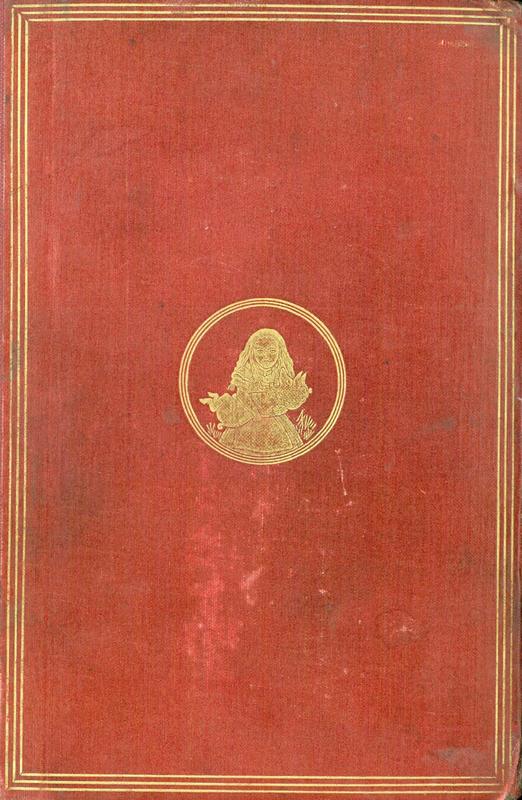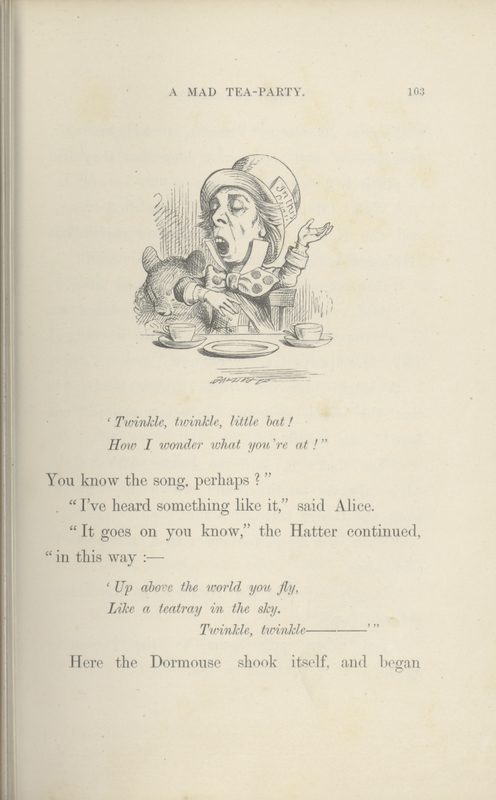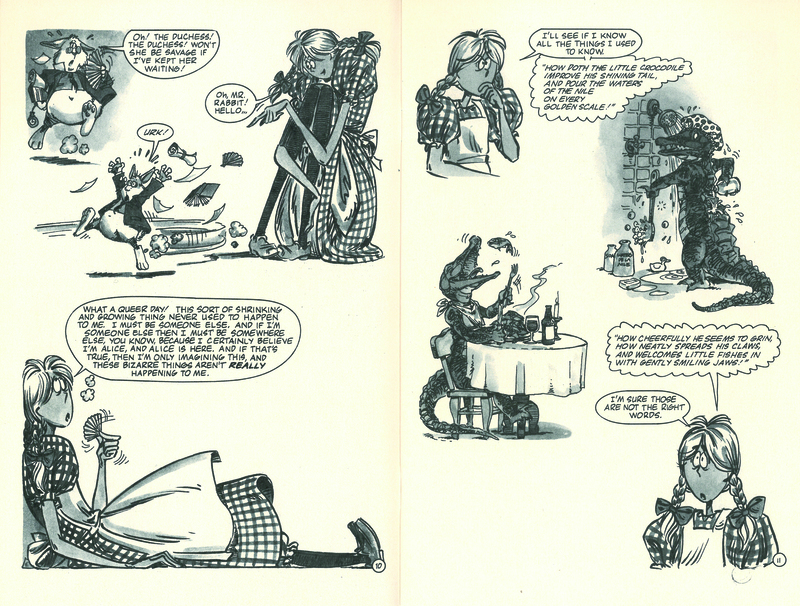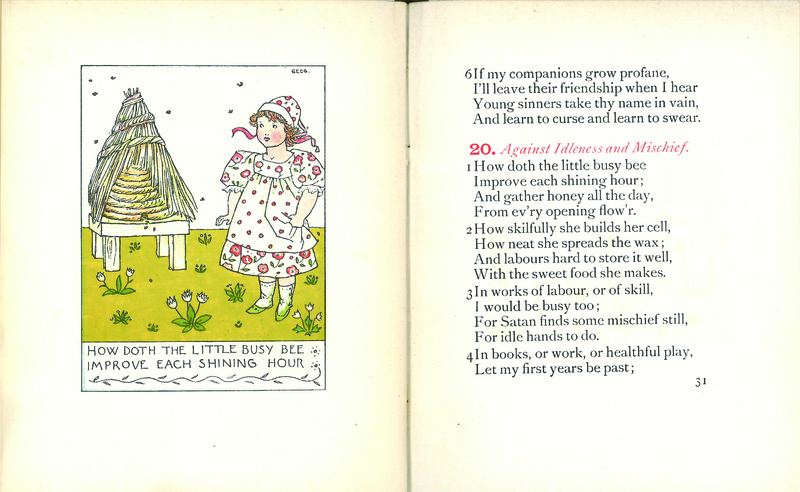Playful Parodies: "How Doth the Little Crocodile"
In Alice, Carroll satirizes the moralizing texts commonly provided to children during the Victorian Age. In this 1980s-era, comic book version of Alice, the reader is shown a shower-capped caricature of a crocodile later eating dinner at a fancy restaurant as Alice recites, “How doth the little crocodile …” Carroll is offering his version of the didactic poems found in 1715’s Divine and Moral Songs for Children.
“Against Idleness and Mischief” from Divine and Moral Songs for Children, was well-known to school children at the time of Alice’s original publication, and it encourages children to be industrious like bees. It begins with "How doth the little busy bee" and clearly connects to Alice's fractured recited poem about a crocodile. Children are admonished with that well-known warning that “...Satan finds some mischief still,/ For idle hands to do.” In the Alice version, a hungry crocodile is offered up as a role model because he is so clean (as all good children are!), and he joyfully eats little fishes.
The last two lines of “Against Idleness and Mischief” are not visible in the reproduction and are included here.
That I may give for ev'ry day
Some good account at last.

Publishing the First Edition

Playful Parodies: "Twinkle, Twinkle, Little Bat"


